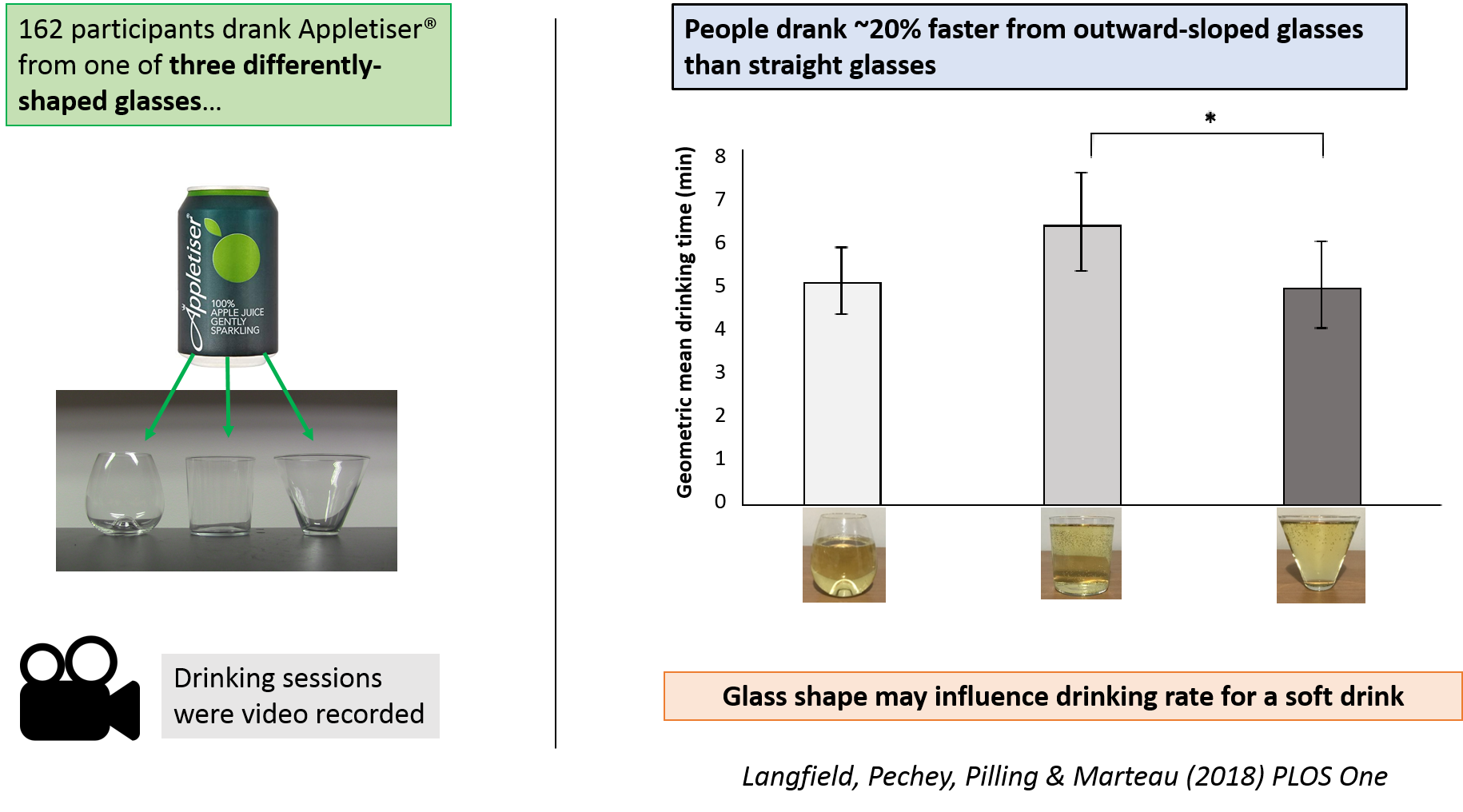Reducing the portion sizes of foods available in restaurants and cafeterias is one promising approach to reducing energy intake, but there is little evidence of its impact from randomised studies in field settings. In this paper, we provide the results of a pilot trial estimating the potential impact of reducing portion sizes of targeted foods in worksite cafeterias. Feedback after the intervention suggested it was broadly acceptable to customers and cafeteria staff. Each of the six cafeterias showed a reduction in daily energy purchased from intervention categories, but the overall reduction across all sites of 8.9% was not statistically significant. The results of this trial suggest that reducing portion sizes could be effective in reducing energy purchased from targeted food categories, but also that future studies will need to address factors that prevented optimal implementation, including site dropout and only reducing portion sizes of a limited range of products.
Impact of reducing portion sizes in worksite cafeterias: a stepped wedge randomised controlled pilot trial. Hollands GJ, Cartwright E, Pilling M, Pechey R, Vasiljevic M, Jebb SA, Marteau TM, 2018


 We are delighted to announce that our MRC Sackler PhD candidate Tess Langfield has had her abstract titled: ‘Impact of glass shape on time taken to drink a soft drink: a laboratory-based experiment’ rated as one of the highest for presentation at this year’s Division of Health Psychology Annual Conference 2018 (run by the British Psychological Society). Tess will be giving her award winning presentation on Friday 7th September at 10:50am.
We are delighted to announce that our MRC Sackler PhD candidate Tess Langfield has had her abstract titled: ‘Impact of glass shape on time taken to drink a soft drink: a laboratory-based experiment’ rated as one of the highest for presentation at this year’s Division of Health Psychology Annual Conference 2018 (run by the British Psychological Society). Tess will be giving her award winning presentation on Friday 7th September at 10:50am.